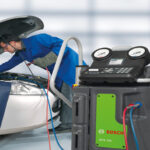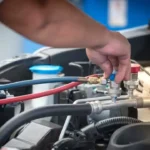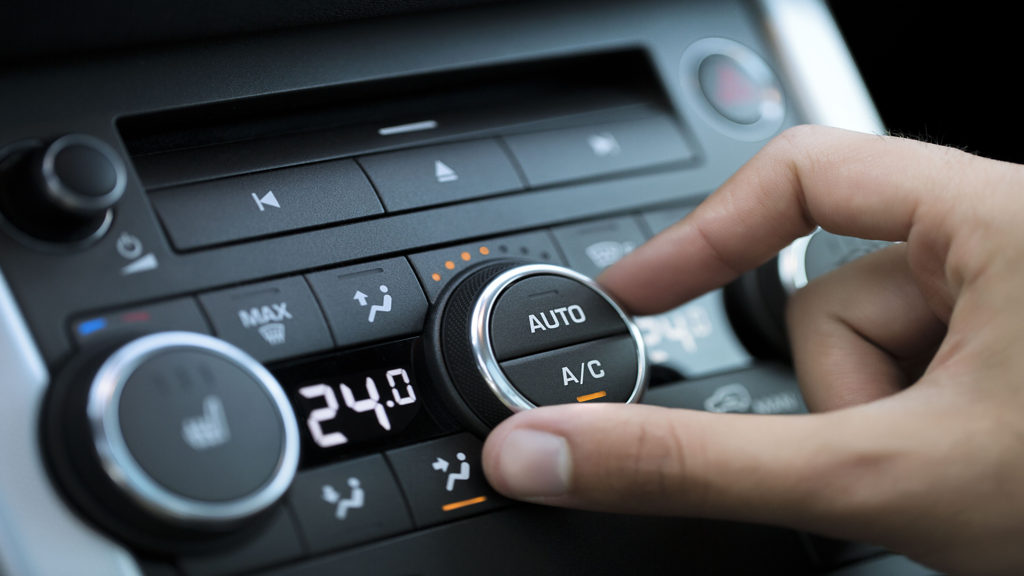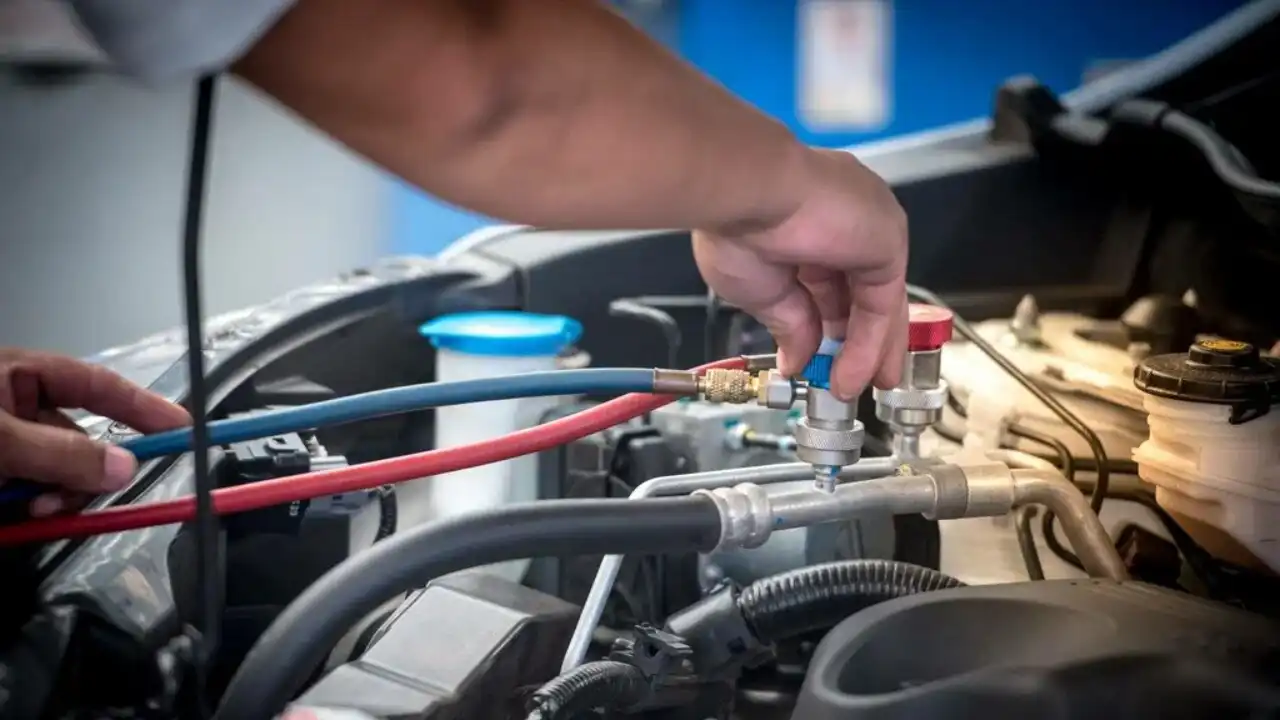Having a working air conditioning (AC) system in your car is extremely important, especially during the hot summer months. When your AC isn’t blowing cold air, it can make driving quite uncomfortable. One of the main components of your car’s AC system is the AC compressor.
The compressor pumps refrigerant throughout the system to produce cold air. Over time, AC compressors can start to fail and show signs of needing replacement. Being aware of major warning signs your car AC compressor is going bad can avoid being stuck without cold air on a hot day.
6 Most Common Warning Signs of Bad Car AC Compressor
Unusual Noises from the Compressor
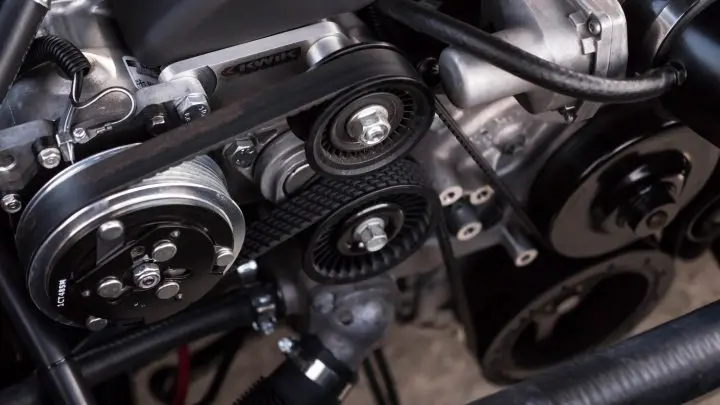
One of the first signs that your AC compressor may be failing is strange noises coming from the front of the engine compartment. As AC compressors wear out, you may hear odd squealing, clicking, or buzzing noises when you turn the system on. These noises indicate internal issues like worn-out bearings or slipping parts.
The noises tend to get louder as more damage occurs inside the compressor. Strange noises signal it’s time to get your AC inspected by a professional mechanic. They can test compressor operation and see if a replacement or rebuild is required. Catching compressor issues now can save you money down the road.
AC Blowing Warm Air

If you turn your AC on and find it’s only blowing warm air, that is a major red flag that you need professional car AC repair service. The compressor’s job is to pressurize refrigerant and circulate it through the AC system components. Cold evaporator coils in your dashboard vents are what make the air cold.
When the compressor isn’t running properly, refrigerant can’t circulate to produce cold air. You may notice the airflow getting gradually warmer over time. Or the AC may simply stop blowing cold at all. Warm air from vents usually means the compressor needs professional attention. Getting the issues addressed quickly will bring back your cold AC.
The AC Clutch Isn’t Engaging
Your car’s AC compressor has an electromagnetic clutch that engages the pulley to turn the compressor on and off. When you flip the AC switch on, voltage runs to the clutch to activate the pulley. If you turn your AC on but the clutch doesn’t engage to spin the pulley, there is likely an electrical issue or seized bearing preventing operation.
Clutch coils can fail over time and need replacement. But oftentimes, the clutch fails to engage due to serious compressor damage. Getting the compressor inspected will determine if it simply needs a new clutch or requires a full rebuild or replacement.
Low Refrigerant Levels
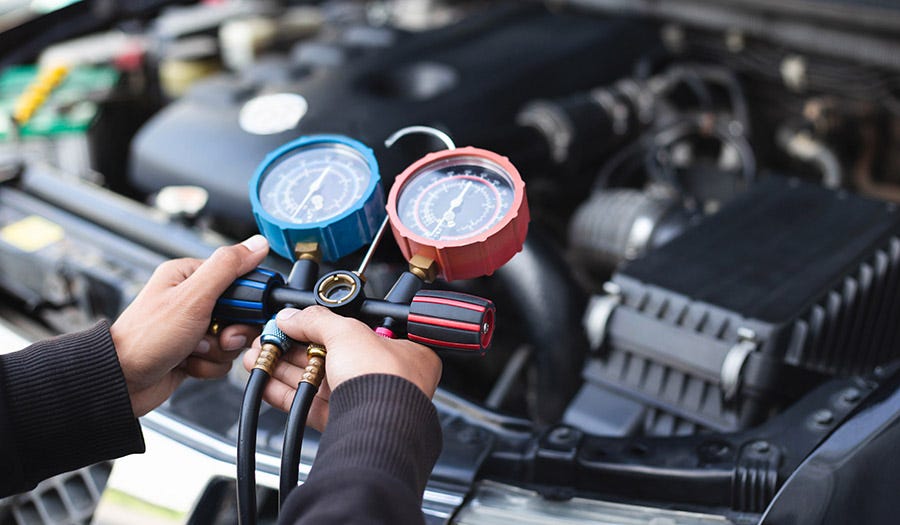
One cause of warm air from AC vents is low refrigerant levels in your car’s AC system. The compressor relies on ample refrigerant to keep the system pressurized for cooling capabilities. However, older compressors often develop leaks and let refrigerant escape slowly over time.
Low levels make it impossible for air to get cold, even with the compressor still working. Before replacing the compressor, a mechanic should check for leaks and recharge the refrigerant first. If it continues leaking out, then a new compressor is needed along with patching the leak. Don’t ignore refrigerant leaks as they indicate compressor wear.
The AC is Inconsistent

If your car’s AC seems to work intermittently, randomly blowing cold then warm air, the compressor is likely failing. Consistency issues show the compressor components are worn and struggling. Internal valves may stick open at times, allowing refrigerant to bypass the cooling cycle.
Older compressors also have worn-out rotors and bearings that prevent smooth operation. The inconsistent performance signals that replacement should happen soon before the compressor seized up completely. That way you can fix the issues before getting stuck with no AC on hot days.
Higher Electrical Load
Your AC compressor relies on the car’s electrical system to run properly. As compressors start to fail from age and wear, they can place extra load on the alternator charging system. Signs of a failing compressor straining your car’s electronics include:
- Dimming headlights when idling
- Battery needing frequent jump starts
- Battery dying more often
If you notice these electrical issues, have your AC inspected for compressor problems. Excess load can burn out alternator diodes and damage other components. Getting compressor issues addressed will remove the strain on the electrical charging system.
Conclusion
Knowing some common and major warning signs your car AC compressor is going bad AC provides the best chance of affordable repairs. Minor issues can turn into complete failure if left unattended. Listen for odd noises, monitor cooling consistency, and watch for refrigerant leaks and electrical strain. If you notice warning signs, have your compressor inspected by a certified AC mechanic.
They can test operations and determine the most cost-effective solution. Stay ahead of AC compressor failure to ensure you keep cool air this summer driving season. Getting repairs done now also prevents being stuck on the side of the road without cold air on sweltering hot days. Don’t take working AC for granted in your daily driver.
Read more: How Long Does Ceramic Coating Last?


